Select Language

By Arriana McLymore
NEW YORK (Reuters) - Two leaders of the U.S. Consumer Products Safety Commission are calling for the agency to investigate e-commerce retailers Shein and Temu after "deadly baby and toddler products" were sold on both websites, according to a letter posted on the U.S. CPSC website on Tuesday.
U.S. CPSC Commissioners Peter Feldman and Douglas Dziak want the agency to evaluate how Singapore's Shein, China's Temu and other foreign-owned e-commerce platforms comply with its rules, handle relationships with third-party sellers and represent imported products.
Shein and PDD Group's Temu, which both ship cheap merchandise into the U.S. from China, are raising "specific concerns" for the Commission for their use of de minimis, a rule exempting packages valued at $800 or less from tariffs if they are sent directly to shoppers.
Critics of Shein and Temu attribute low prices and de minimis to Shein and Temu's success in the U.S. Both companies have also come under scrutiny for the quality of their products.
A bipartisan group of U.S. lawmakers last year planned to introduce a bill to eliminate the de minimis, which is widely used by e-commerce platforms including third-party sellers on Amazon.com (NASDAQ:AMZN) and Walmart (NYSE:WMT).com.
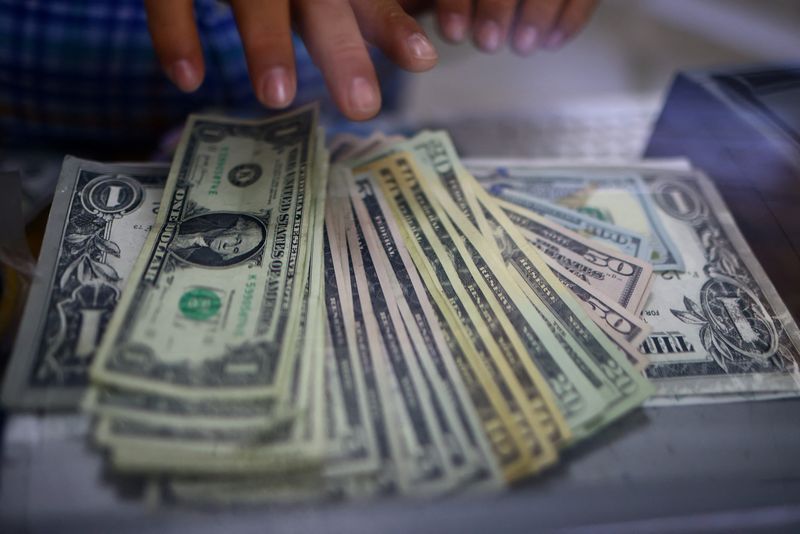
By Ankur Banerjee
SINGAPORE (Reuters) -The dollar inched higher and held close to a two-week high on Tuesday as investors geared up for a slew of economic data, including Friday's U.S. payrolls, that could influence the size of an expected interest rate cut from the Federal Reserve.
The euro was 0.16% lower at $1.1055, not far from the two-week low of $1.1042 it touched in the previous session, while sterling eased 0.17% to $1.3124.
That left the dollar index, which measures the U.S. currency against six rivals, 0.11% higher at 101.77, just shy of the two-week high of 101.79 it touched on Monday. The index fell 2.2% in August on expectations of U.S. rate cuts.
Investor focus this week will squarely be on the U.S. payrolls data due on Friday after Fed Chair Jerome Powell last month endorsed an imminent start to interest rate cuts in a nod to the worries over the labour market.
Ahead of that, job openings data on Wednesday and the jobless claims report on Thursday will be in the spotlight.
Markets are pricing in a 69% chance of a 25 basis points (bps) cut when the Fed meets on Sept. 17-18, with a 31% probability of a 50-bps cut, CME FedWatch tool showed.
This week’s overload of labour data will be crucial in breaking the debate between a 25- or 50-bps cut in September, said Charu Chanana, head of currency strategy at Saxo.
"If the data remains robust, a 25 bps cut is more likely. However, a weak non-farm payrolls, particularly if it falls below 130,000 with another jump higher in unemployment rate, could push the rates market closer to pricing a 50 bps cut"
Economists surveyed by Reuters expect the addition of 165,000 U.S. jobs in August, up from an increase of 114,000 in the previous month.
Win Thin, Brown Brothers Harriman's global head of market strategy, said data last week confirmed what markets already knew. "That is, the U.S. economic growth remains robust, driven by strong consumption, even as disinflation continues slowly but surely."
Data on Friday showed personal consumption expenditures (PCE) price index - Fed's preferred measure of inflation - rose 0.2% in July, matching economists' forecasts, keeping the U.S. central bank on the path to cut rates.
"We are in a Goldilocks moment right now and so we continue to believe the Fed will start cutting rates this month in a very gradual manner," Thin said in a note.
Markets, though, anticipate 100 bps of cuts from the remaining three meetings this year.
Ten-year Treasury yields were little changed at 3.915% as trade resumed in Asia following a U.S. holiday on Monday.
Elsewhere, the yen fetched 146.50 per dollar, up 0.3% on the day but still close to the two-week low of 147.16 hit on Monday.
Analysts said the yen moves was likely just an unwind of Monday's drop when U.S. markets were closed leading to thin liquidity and sudden moves.
The Australian dollar fell 0.8 to $0.6737, ahead of the gross domestic product (GDP) report due on Wednesday, after rising 3.5% in August. The New Zealand dollar slipped 0.75% to $0.61875, having surged 5% last month. [AUD/]
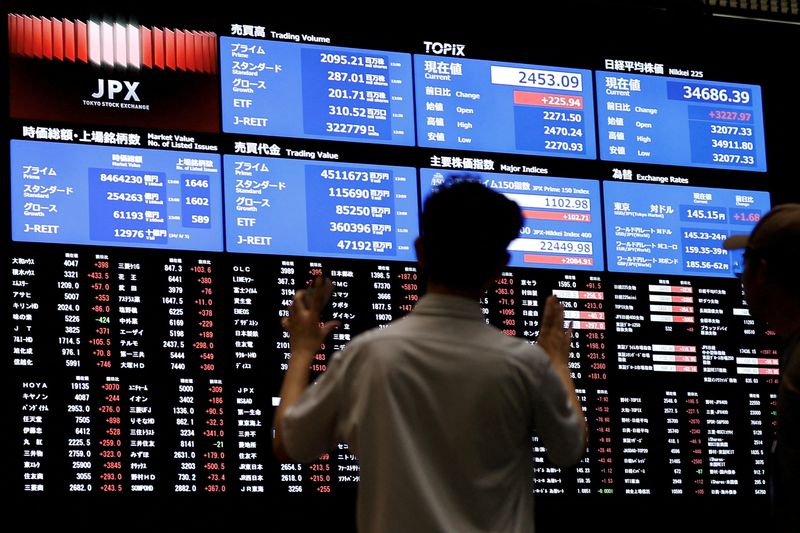
By Tom Westbrook
SINGAPORE (Reuters) - Bond yields drifted higher on Tuesday, while currencies and Asia's stock markets steadied as investors waited on a raft of data to determine how deeply the U.S. can cut interest rates.
Ten-year Treasury yields were slightly higher at 3.919% and two-year yields rose a basis point to 3.935% as trade resumed in Asia following a U.S. holiday overnight.
Upbeat spending figures on Friday led markets to trim the chance of a half-point easing from the Federal Reserve. The U.S. ISM manufacturing survey due later in the day and particularly jobs data due on Friday will be crucial for the Fed's decision.
MSCI's broadest index of Asia-Pacific shares outside Japan ticked 0.1% lower. Japan's Nikkei rose 0.7% and S&P 500 futures were flat. The dollar has steadied along with U.S. yields as focus turns to Friday.
"It really boils down to Friday's number," said Raisah Rasid, global market strategist at J.P. Morgan Asset Management in Singapore, with policymakers looking for a cooling labour market to clear the way for rate cuts.
"We don't see any stress or indications that would necessitate a 50 basis point cut...the question is how long will risk assets continue to rally?"
Economists forecast the ISM survey improving but remaining in contractionary territory at 47.5 in August.
"I am not so sure the dollar will take too kindly to a weaker read," said Pepperstone analyst Chris Weston. "A number closer to 50 would likely compel dollar shorts to cover."
On Friday analysts are looking for a rise of 160,000 in jobs and a dip in the unemployment rate to 4.2%.
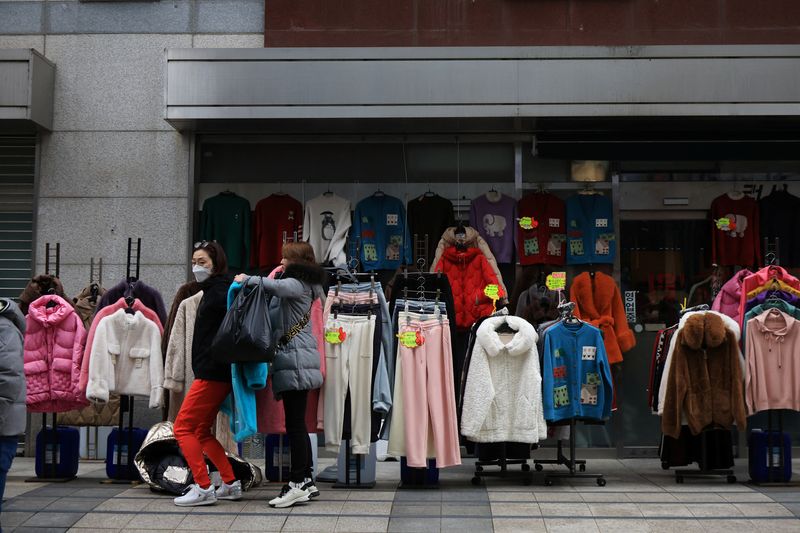
By Jihoon Lee
SEOUL (Reuters) -South Korea's consumer inflation slowed in August to the weakest in nearly 3-1/2 years, official data showed on Tuesday, supporting market expectations for an easing of monetary policy as early as next month.
The consumer price index (CPI) rose 2.0% from a year earlier, after gaining 2.6% the previous month, marking the slowest annual rise since March 2021.
It matched the median 2.0% increase tipped in a Reuters survey of economists and the central bank's medium-term inflation target of 2%.
"Going forward, unless there is any additional shock from weather conditions or global oil prices, consumer inflation is expected to stabilise in the lower 2% range," said Vice Finance Minister Kim Beom-seok.
Last month, the Bank of Korea held interest rates steady at their highest in nearly 16 years but revived expectations for a policy easing that some economists see happening as soon as October as growth concerns overshadow inflation worries.
The central bank said Tuesday's data showed inflation was stabilising more quickly than in other major economies and it expected prices to maintain a stable trend.
"The data supports a rate cut in October, which is seen most likely for now, although it is still not a sure thing due to growing household debt," said Ahn Jae-kyun, a fixed-income analyst at Shinhan Securities.
South Korea's treasury bond yields traded slightly down on Tuesday after three straight sessions of gains.
On a monthly basis, CPI was up 0.4%, the fastest in six months, after rising 0.3% the prior month and beating a forecast by economists for 0.3%.
Core CPI, excluding volatile food and energy items, rose 2.1% from a year earlier, slowing from the previous month's 2.2% rise and marking the weakest since November 2021.

By Makiko Yamazaki and Ritsuko Shimizu
TOKYO (Reuters) - Japanese companies cannot use a national security designation as a tool to thwart foreign takeovers, a senior finance ministry official said, pushing back at speculation Tokyo's foreign exchange act could be manipulated for protectionism.
The comments follow media reports retail giant Seven & i Holdings is seeking to be classified as "core" to national security under the Foreign Exchange and Foreign Trade Act (FEFTA) to fend off a buyout bid from Canada's Alimentation Couche-Tard.
The senior official, who declined to comment on individual deals, told Reuters the issue of "core" classification doesn't change the process of the government's security review in cases of foreign bids for companies designated as significant to Japan's economy or security.
Seven & i, with a market value of $38 billion, is currently categorised in the finance ministry's classification list as a company that conducts "designated", not "core", businesses.
Businesses considered "core" are those deemed crucial for national security, including nuclear power, space and semiconductors.
Foreign entities face stricter requirements to notify the government in advance when attempting to acquire a stake in a company with a business classified as "core" than they do when targeting companies in "non-core" sectors.
But in the case of acquiring control in any so-called "designated business", a would-be buyer must file prior notification regardless of whether the target is "core" or "non-core", the official said.
The official added that the classification doesn't affect the degree of scrutiny during its review on national security, saying that the government "will examine whether the transaction would pose risks to national security."
The ministry's classification list regarding prior notification requirements is based on surveys of all listed companies. The classifications there "are not something that would need government approval," the official said.
The official declined to be named due to the sensitivity of the issue.
When asked about the reported pursuit of the "core" tag, Seven & i said it replied to the ministry's latest survey by the Aug. 23 deadline detailing the company's current structure and businesses.
The survey is not related to Couche-Tard's buyout proposal, which the Japanese company revealed on Aug. 19, Seven & i said.
Convenience stores, Seven & i's mainstay business, are not a designated sector that requires FEFTA review, but the group has wide-ranging businesses including financials and security.
Japan in 2008 blocked the London-based Children's Investment Fund from buying shares in Electric Power Development Co, known as J-Power. That's the only deal that has been rejected under the FEFTA, but there are cases where plans have been modified or withdrawn during reviews, according to the finance ministry.
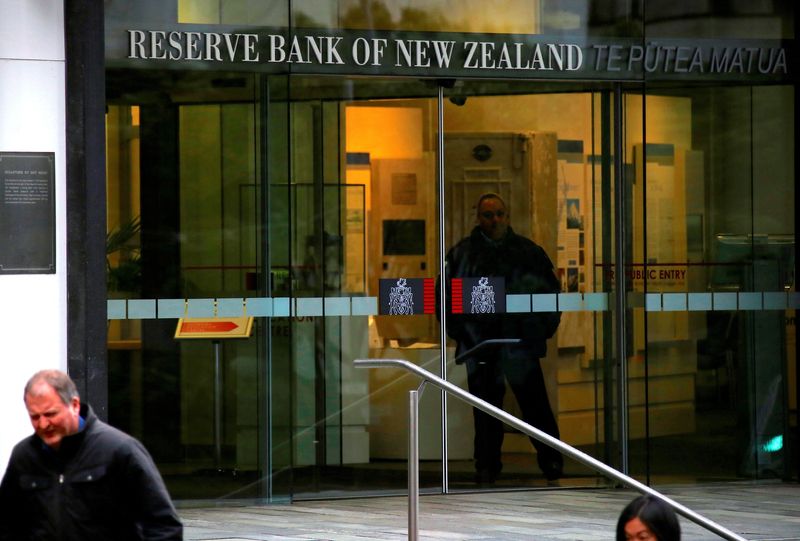
By Lucy Craymer and Wayne Cole
WELLINGTON (Reuters) - Lags in New Zealand's official economic data are creating a fog for policy makers that recently forced them to veer off course and cut interest rates a whole year earlier than projected, badly wrong footing financial markets.
Years of tight funding by successive governments have left statisticians struggling to keep up with a rapidly changing economy, and nowhere more so than with inflation.
The more than two-decade old system they use is not able to calculate monthly data, making the country rare among developed nations in reporting consumer price indexes (CPI) quarterly, rather than monthly. This makes it harder for the Reserve Bank of New Zealand (RBNZ) to spot turning points in a timely manner.
"We are behind in terms of most advanced economies," Karen Silk, RBNZ Assistant Governor, told Reuters in an interview. "Monthly CPI...(it) would be delightful to get that."
As recently as May, the central bank was seriously considering whether it needed to hike rates further to bring inflation to heel. By its next meeting in early July, private business surveys and card spending data from banks had made it more confident cost pressures were easing.
It had to wait another week for the official CPI report for the second quarter, which showed inflation slowing faster than most predicted.
By August, the outlook had swung 180 degrees and it cut rates a quarter point to 5.25%, flagging a lot more to come.
"We're still waiting to find out what the June GDP is, that's months back," Governor Adrian Orr said after the August decision. June quarter GDP is not due until Sept. 19 almost two months after the first reading on U.S. growth.
Stats NZ, the official data bureau, notes it is within the International Monetary Fund's 90-day guideline.
VOLATILE MARKETS
While only a small economy of 5.3 million people, the New Zealand dollar is widely traded and investors globally follow its markets. As a result, the RBNZ's sudden turn last month sliced a whole cent off the currency and sent bond prices surging.
Even the size of the island's population is in doubt as the government did away with paper departure cards in 2018, making the data less reliable and regularly revised. Stats NZ says COVID-19 had affected their modelling and that they were working to fix this.
This is made more important given the role migration has played in this economic cycle.
Andrew Lilley, chief rates strategist at Barrenjoey in Sydney, said statistics departments often had tight budgets as data was usually a low priority politically.
"For every 10 basis points that unemployment goes up unnecessarily because you have the wrong read on the data, that's 2,000 people who are out of work," Lilley said.
"If people knew this, they might be more willing to pay for good data collection and good statistics."
Funding of the bureau has jumped around 60% since 2020 to NZ$258 million ($160.76 million) to deal with new initiatives and cost pressure but took a hit this year as the government cut spending to reduce the budget deficit.
"There is always a case to increase funding to do more," said statistics minister Andrew Bayly. He added improving economic datasets was one of his priorities.
The system that Stats NZ currently uses to produce CPI was built more than 20 years ago where either someone went to stores to collect data or retailers were sent surveys. An improved system is being designed but completion remains some way off, Stats NZ said.
Economists use several methods to get a better read on where money is and isn't being spent, including internal bank card data.
ANZ Bank recently added extra questions to its business outlook survey to better gauge conditions.
Sharon Zollner, chief economist at ANZ Bank, said while more data was always better, there is a risk that monthly CPI could be volatile whereas quarterly figures can cut through that noise.
Stats NZ has worked to improve data, releasing selected indexes monthly that equate to roughly 45% of the CPI and include the more volatile components.
In 2019, it started a monthly jobs indicator.
Jason Attewell, general manager of economic and environmental insights at Stats NZ, said there were current constraints to getting new systems up and running or speeding up data publications.
"Stats does pretty well punching above our weight as a small, relatively speaking, national statistical office," he said, noting they produce more than 250 releases each year.
Grant Williamson, an investment advisor at Christchurch's Hamilton Hindin Green, said a monthly CPI with less lag would help.
"A little bit of money spent having more up to date data would be beneficial for everyone, including, obviously, the Reserve Bank," he said. "Having more up to date data could influence (investment) decision making on time a little."
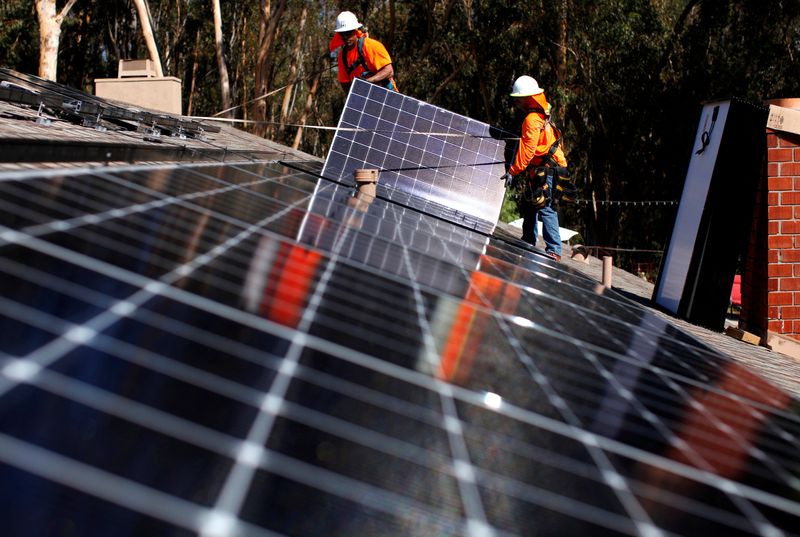
(Reuters) -U.S. jobs numbers dominate the agenda as markets brace for a choppy September, with France seeking a way through its political mess, Germany having regional polls and African leaders heading to Beijing.
Here's your guide to the week ahead in financial markets from Kevin Buckland in Tokyo, Ira Iosebashvili in New York, Duncan Miriri in Nairobi and Dhara Ranasinghe and Naomi Rovnick in London.
1/ LABOUR OF LOVE
With the Federal Reserve on the cusp of monetary policy easing for the first time in years, attention turns to the Sept. 6 U.S. employment data for clues on how aggressively the Fed might move in coming months.
Fed Chair Jerome Powell flagged it was time to start reducing interest rates, and many in the markets expect the process to begin with a 25 basis point cut at the Sept. 17-18 meeting.
Further signs of the labour market weakness that helped to roil markets in late July and early August could revive recession fears and cause investors to dump riskier assets.
Expectations of heftier rate cuts have dented the dollar, which is hovering around one-year lows, in part on expectations that imminent monetary policy easing will narrow the yield advantage the U.S. has over many developed economies.
2/ VOLATILITY
Global stocks have bounced back to near-record highs after an early August swoon driven by a Bank of Japan interest rate hike causing a feedback loop of selling and volatility. There could be more trouble ahead.
Bank of America analysts say stock market volatility tends to rise in September and October. Citi strategists reckon market expectations of future stock market swings are too low.
August's selloff was ignited as carry trades that gambled on U.S. rates staying far higher than Japan's imploded. Unsuccessful speculators sold other assets to cover losses, helping to wipe about $1 trillion off U.S. tech stocks.
Markets have since moved to a view that Fed rate cuts will support stocks and bonds, but data surprises could disrupt currency markets and potentially cause further cross-asset shocks.
3/ CHILL IN THE AIR
Summer has ended abruptly in France. Having successfully hosted the Olympics, France needs a government, and the focus has returned to President Emmanuel Macron's political crisis.
Socialists and Greens say they will not participate in further talks with Macron, who has slammed the door on a potential leftist government.
Investors, waiting for progress, have shunned French stocks.
The CAC index remains 5% below levels seen in June before Macron announced a snap election and has hardly risen this year, while German shares have rallied 12%.
But Germany has problems of its own. Big wins for the far-right AfD in Sunday's two regional elections is a headache for German Chancellor Olaf Scholz fractious coalition before 2025's national election. The economy is weak, shrinking 0.1% in Q2. The Ifo Institute president says the economy is increasingly falling into crisis.
The markets' focus on France, could soon shift to Germany.
4/ UNDAUNTED HAWKS
Bank of Japan officials have not shied away from further rate hikes despite the August market ructions as BOJ chief Kazuo Ueda's sharp hawkish shift collided with U.S. recession worries and an aggressive unwind of bets against the yen and global stocks sell-off.
Deputy Governor Ryozo Himino echoed his boss by saying monetary tightening would continue if inflation evolves as the BOJ expects and markets need to be monitored closely.
The course for consumer prices is far from clear though: Tokyo CPI, a bellwether for the nationwide figure, accelerated to 2.4% in August, above the BoJ's 2% target. The closely watched core-core measure excluding fresh food and energy came in at just 1.3%.
Retail sales figures published at the end of August fell short of estimates, while household spending has declined every month since February last year. An update of that series is due on Sept. 6.
5/ AFRICAN LEADERS HEAD TO CHINA
African government officials, including presidents and prime ministers from countries including Kenya, Senegal and South Africa head to Beijing for the ninth edition of the Forum on China-Africa Cooperation.
The once-every-three-years meeting - the main summit of engagement between both sides - follows data that showed annual Chinese lending to the continent rose to $4.6 billion last year - the first increase since 2016.
However, the figure is far from the peak 2012-2018 levels of more than $10 billion at the height of the Belt and Road Initiative. The decline has been caused by China's own domestic pressures and debt problems among African economies, such as Ethiopia, Kenya and Zambia.
African officials will be keen to seek commitments from Beijing on boosting financing and investments, while Ethiopia, for instance, will focus on debt restructuring talks.
(Graphics by Sumanta Sen, Vineet Sachdev, Pasit Kongkunakornkul, Prinz Magtulis and Kripa Jayaram; Compiled by Karin Strohecker; editing by Barbara Lewis)

By Farah Master and Andrew Silver
HONG KONG/SHANGHAI (Reuters) - As China builds fewer houses and bridges, its consumers buy cheaper, less-healthy meals, and as factories and farms invest in automation, a new fiscal challenge is emerging: the country's obesity rate may grow much faster and add to healthcare costs.
Job stress, long work hours and poor diets are growing high- risk factors in the cities, while in rural areas, agriculture work is becoming less physically demanding and inadequate healthcare is leading to poor screening and treatment of weight problems, doctors and academics say.
China is facing a twin challenge that feeds its weight problem: In a modernising economy underpinned by technological innovation, more jobs have become static or desk-bound, while a prolonged slowdown in growth is forcing people to adopt cheaper, unhealthy diets.
With housing and infrastructure already abundant, for instance, millions of workers have switched from construction and manufacturing jobs to driving for ride-sharing or delivery companies in recent years.
In a deflationary environment, consumers prefer cheaper meals, which can be unhealthy. Parents cut down on swimming or other sport classes. China's fast food market is expected to reach 1.8 trillion yuan ($253.85 billion) in 2025, from 892 billion yuan in 2017, according to Daxue Consulting.
"Economic downturns often lead to changes in peoples lifestyles," said Yanzhong Huang, senior fellow for global health at the Council on Foreign Relations. "Dietary habits may become irregular, and social activities might decrease."
"These alterations in daily routines can contribute to an increased incidence of obesity, and consequently, diabetes," he said, adding that he expected obesity rates to continue "rising exponentially, burdening the healthcare system."
In July, Guo Yanhong, a senior official of the National Health Commission (NHC), said that obese and overweight people pose "a major public health issue."
The NHC did not immediately respond to a request for comment.
Xinhua, China's official news agency reported in the same month that more than half of the country's adults are obese or overweight, higher than the 37% estimate provided by the World Health Organisation.
A study by BMC Public Health estimates that costs with weight-related treatments are expected to rise to 22% of the health budget, or 418 billion yuan by 2030, from 8% in 2022. The estimate was "conservative" and did not take into account increases in healthcare costs, it said.
That will add further strain on indebted local governments and reduce China's ability to direct resources to more productive areas to stimulate growth.
AWARENESS CAMPAIGN
China's NHC and 15 other government departments in July launched public awareness efforts to fight obesity. The campaign, set to last for three years, is built around eight slogans: "lifelong commitment, active monitoring, a balanced diet, physical activity, good sleep, reasonable targets and family action."
Health guidelines were distributed to primary and secondary schools in July urging regular screening, daily exercise, hiring nutritionists and implementing healthy eating habits – including lowering salt, oil and sugar.
The WHO defines an overweight person as someone with a body mass index (BMI) of 25 or higher, while the BMI threshold for obesity is 30.
Only 8% of Chinese are considered obese, higher than neighbouring Japan and South Korea, but far lower than the United States' 42% rate, WHO data show.
That's in part because it's a relatively new problem in China, which has experienced widespread famine as recently as the 1960s.
"China has undergone an epidemiological transition where diseases associated with under-nutrition have changed to an increase of those with unhealthy diets and sedentary lifestyles," said Christina Meyer, health policy analyst at RTI International in Seattle.
STRUCTURAL FACTORS
As consumers and workers adapt to the structural changes in an economy urbanizing rapidly in the coming decade, many overweight Chinese could cross the obesity threshold, doctors say.
"The economic downturn in China could lead to an increase in the consumption of low-quality foods, such as fast food, due to income declines," said Jun Sung Kim, an economist at Sungkyunkwan University in South Korea.
"This, in turn, may contribute to obesity."
China's fresh push to increase urbanisation rates is a particular concern in light of its "996" culture of working 12-hour shifts, six days a week.
Pui Kie Su, general practitioner at Raffles Hospital Beijing says some patients report eating to "de-stress" from work.
The proportion of obese boys in China jumped to 15.2% in 2022 from 1.3% in 1990, trailing the United States' 22%, but higher than Japan's 6%, Britain's and Canada's 12% and India's 4%. Obesity in girls rose to 7.7% in 2022 from 0.6% in 1990.
Many students buy snacks around the school gate or on their way home that are usually high in salt, sugar and oil, says Li Duo, chief professor of nutrition at Qingdao University.
Li added that the government should “further communicate” with food companies, schools, communities and retailers about the risks of obesity caused by junk food or sweetened beverages.
“China should ban the sale of junk food and sugary drinks in schools, and there should be no shops selling junk food within a certain distance around schools."
($1 = 7.0908 Chinese yuan renminbi)

By Shaloo Shrivastava
BENGALURU (Reuters) - India's manufacturing activity growth eased to a three-month low in August as demand softened significantly, a private-sector survey showed on Monday, casting another shadow over the otherwise robust economic outlook.
Growth in Asia's third-largest economy slowed to 6.7% last quarter from 7.8% as government spending fell, official data showed on Friday.
The HSBC final India Manufacturing Purchasing Managers' Index, compiled by S&P Global, fell for a second month in August, dropping to 57.5 from July's 58.1 and below a preliminary estimate of 57.9.
Despite falling, the index beat its average and held above the 50-mark that separates growth from contraction, where it has been since July 2021.
It was supported by demand that remained upbeat despite some recent softening. The output and new orders sub-indexes - gauges of demand - both slipped to seven-month lows. International demand grew at its weakest pace since January but stayed strong.
"New orders and output also mirrored the headline trend, with some panellists citing fierce competition as a reason for slowdown," noted Pranjul Bhandari, chief India economist at HSBC.
While cost pressures were the lowest since March this year, output price inflation was close to July's near 11-year high as resilient demand allowed firms to easily pass on extra costs to clients.
"In line with input costs, the pace of output price inflation also decelerated, but the deceleration was to a much smaller extent, thereby increasing margins for manufacturers," added Bhandari.
Inflation in India fell to a near five-year low of 3.54% in July, largely due to the high-base effect, indicating the slowdown was temporary. The Reserve Bank of India (RBI) is expected to cut interest rates next quarter by 25 basis points.
Upbeat demand and business optimism led companies to add headcount for the sixth month running, although hiring slowed for a second consecutive month.
The year-ahead outlook was robust even though it hit a 16-month low. Optimism was dented by inflation and competition concerns.
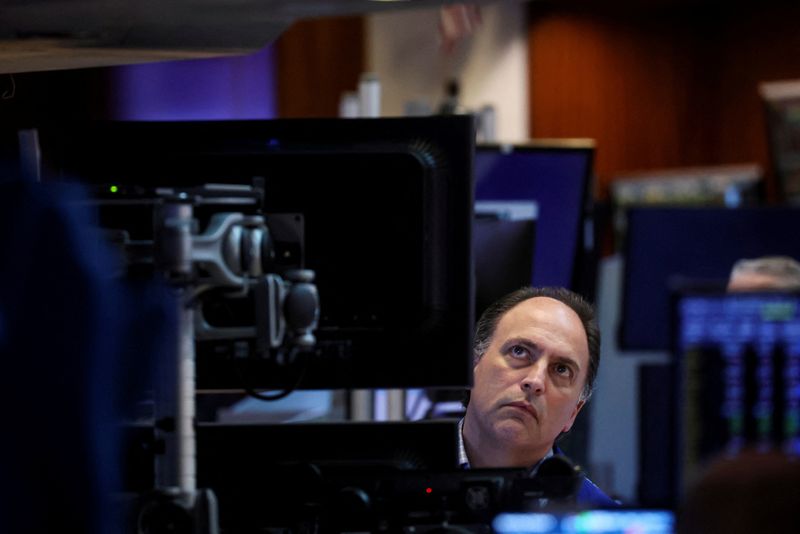
Investing.com -- Friday’s August employment report will be the main focus in the holiday-shortened week ahead as markets prepare for the Federal Reserve to begin cutting rates later this month. Meanwhile, the Bank of Canda is set to deliver another rate cut, oil prices look likely to remain under pressure and China is to release more manufacturing data. Here's your look at what's happening in markets for the week ahead.
1. Nonfarm payrolls
With the Fed gearing up to cut interest rates for the first time in years investors will be focusing their attention on Friday’s August jobs report for clues about how aggressively the central bank may move.
Fed Chair Jerome Powell has flagged it is time to start reducing interest rates, and many in the markets expect the process to begin with a 25-basis point cut at the Sept. 17-18 meeting.
Any signs of weakening in the labor market could revive fears over the prospect of a recession that roiled markets in late July-early August. The influence of the Japanese yen carry trade exacerbated the selloff.
Ahead of Friday’s report there are other updates on the health of the labor market, starting with Wednesday’s Jolts job openings report, which also contains data on layoffs. ADP data on private sector hiring will be released on Thursday, along with the weekly report on initial jobless claims.
2. Market volatility
Wall Street stocks rose, and the Dow scored a second consecutive all-time closing high on Friday on hopes for imminent Fed rate cuts.
Markets have rebounded since the early August selloff and signs that the rally is broadening is seen as an encouraging signal to investors worried about concentration in technology shares.
Investors are also putting money in less-loved value stocks and small caps, which are expected to benefit from lower interest rates.
But historically, September and October can be volatile months for stocks according to analysts at Bank of America and but any surprises from economic data could cause fresh market shocks.
3. Bank of Canada to cut again
The Bank of Canada is widely expected to deliver its third consecutive rate cut when it meets on Wednesday.
The bank has already trimmed its benchmark rate twice since June to bring it down to 4.5% and markets are currently expecting two more rate cuts this year after September.
Data on Friday showed that the Canadian economy grew at a slightly faster than expected rate in the second quarter but in a sign of coming weakness June growth was flat and Statscan said preliminary estimates showed there would also be no growth in July.
BoC Governor Tiff Macklem hinted after the bank’s July at shifting the bank's focus towards boosting the economy rather than combating inflation.
4. Oil prices under pressure
Oil prices ended the week lower on Friday and notched up hefty monthly losses as expectations for an increase in OPEC+ supply starting in October weighed.
Brent crude futures for October delivery, which expired on Friday, settled $1.14 lower at $78.80 a barrel, marking a decline of 0.3% for the week and 2.4% for the month.
U.S. West Texas Intermediate crude futures settled down $2.36 at $73.55, a drop of 1.7% in the week and a 3.6% decline in August.
Reuters reported Friday that OPEC+ is sticking to plans to increase output from next month as Libyan outages and pledged cuts by some members to compensate for overproduction offsets the impact of sluggish demand.
Uncertainty around expected rate cuts from the Fed also weighed as strong consumer spending data on Friday argued against a faster pace of easing. Lower rates can boost economic growth and demand for oil.
5. China data
China is to release August Caixin manufacturing PMI data on Monday which is expected to tick back into expansion territory after contracting in July.
Government data on Saturday showed that Chinese manufacturing activity sank to a six-month low in August as factory gate prices tumbled and owners struggled for orders, keeping up pressure on Beijing for more economic stimulus measures to bolster household demand.
Following a weak performance in the second quarter, the world’s second-largest economy continued to lose momentum in July.
Policymakers have indicated a shift from their traditional strategy of investing heavily in infrastructure projects, instead focusing stimulus efforts directly on households.
--Reuters contributed reporting

